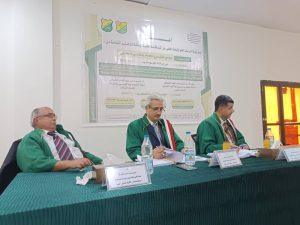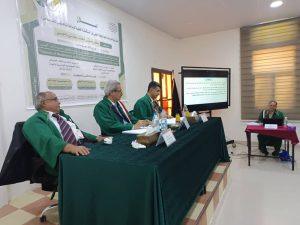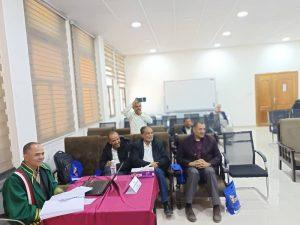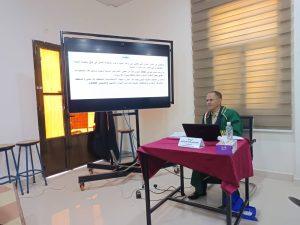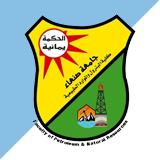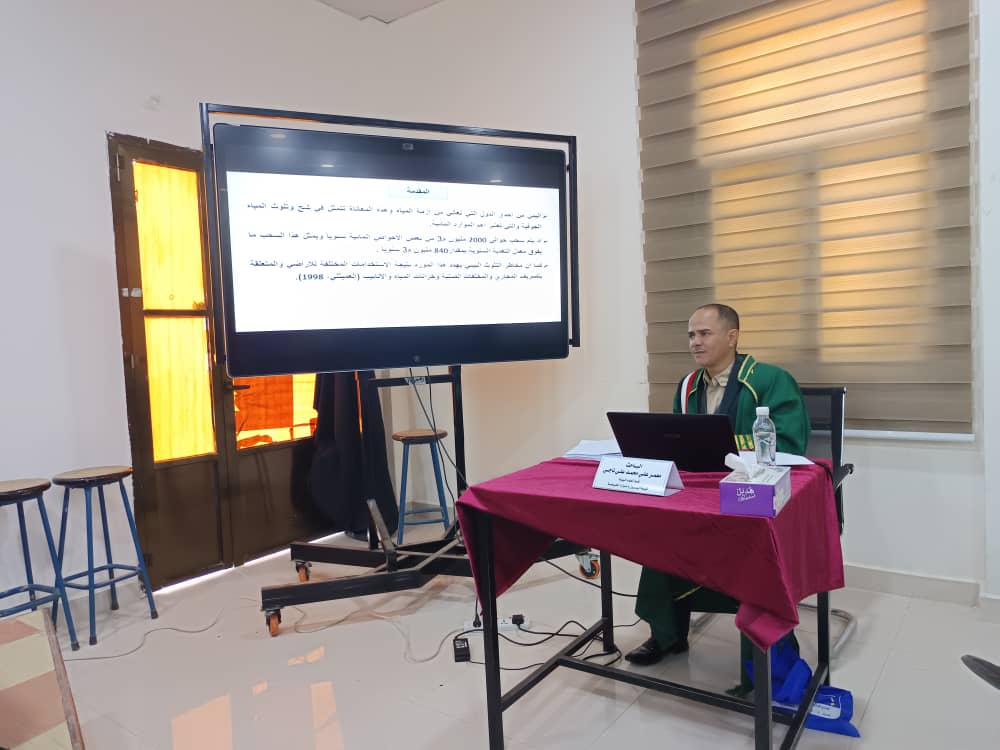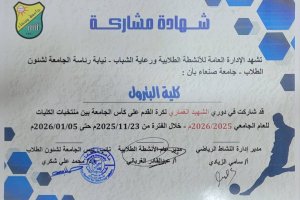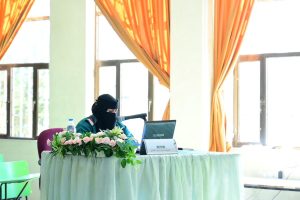Public MA Viva-Voce Examination of Mr. Moammar Ali Mohammed Ali Naji
Public MA Viva-Voce Examination of
Mr. Moammar Ali Mohammed Ali Naji
The Public Viva-Voce Examination for the MA Thesis hereto entitled, Impacts of Wastewater on Groundwater Quality of AL-Dhihar- IBB City- Yemen, submitted by Mr. Moammar Ali Mohammed Ali Naji, Department of Environmental Sciences, Faculty of Petroleum and Natural Resources, was held on Thursday, 2 /7 /1446 Hijri corresponding to 1/ 1 /2025. The Viva-Voce Committee, which was formed based on a resolution issued by the Post-Graduate Studies and Scientific Research Council, consisted of the following:
# Committee Members Designation University Position
1 Prof. Nabil Abdo Al-Shwafi Main Supervisor Sana’a University Member
2 Prof. Hisham Mohammed Naji Internal Examiner Sana’a University Chairman
3 Dr. Ghunaim Nasher External Examiner Al Hudaydah University Member
The assessment of groundwater potential and quality for drinking purposes has recently become a major concern, especially in developing countries. The aim of this study is to assess the quality of groundwater and determine its suitability for drinking and domestic purposes in Ibb city, Al-Dhahar district, Yemen. Therefore, this study was conducted on some groundwater wells used for drinking, with the aim of knowing the levels of potential pollution in them. To achieve this goal, 20 groundwater wells used for drinking water and two wastewater plants (incoming and outgoing water) were selected, and physical, chemical and biological analyses were conducted on them. This was during the winter and summer seasons of 2020-2021. The study samples were analyzed in the laboratory of the local water and sanitation institution in Ibb governorate.
The results showed variations in the indicators that were investigated in drinking water samples for the winter and summer seasons, as the sample concentrations of the following elements matched: temperature, pH, electrical conductivity, total dissolved salts, turbidity, total alkalinity, ammonia, calcium, magnesium, fluoride, chloride, sulfate, sodium, potassium, iron, carbonate, while the results of water sample analysis for some wells showed violations of several indicators, including, total hardness, bicarbonate, nitrate, and nitrite, for Yemeni and international standard.
The results obtained in wastewater samples for the winter and summer seasons also showed a match in the concentrations of the following elements: temperature, pH, carbonate, magnesium, fluoride, sulfate, sodium, while the concentrations of the following elements: electrical conductivity, turbidity, total alkalinity, bicarbonate, calcium, ammonia, nitrate, nitrite, iron, in wastewater samples for the winter and summer seasons exceeded Yemeni and international specifications. The results of some samples indicate a significant excess in the BOD5 and COD values, which reflects the presence of large quantities of biologically and chemically degradable organic materials in the water, which may be the result of contamination with organic waste, and also reflects the weakness and efficiency of the wastewater treatment plant.
The results indicate clear seasonal variations in the concentrations of various elements between winter and summer, in both drinking water and wastewater, with a noticeable increase in the concentration of some elements during the summer. This may be due to the increase in human activity and agricultural activities, as large quantities of fertilizers and pesticides are used in agriculture during the summer, which leads to increased leakage of these materials into groundwater and surface water, in addition to the fact that increased rainfall in the summer may increase bacterial growth rates.
These excesses of the permissible limits may directly affect the suitability of water for human consumption, and therefore require taking urgent measures and making efforts to protect groundwater sources from contamination with these elements through periodic analyses of the studied groundwater well sources, including the proper management of sewage and solid waste in the study area.
The MA thesis has been examined and is recommended by the Viva-Voce Committee for acceptance and approval. The Candidate was recommended to be awarded the degree of Master majoring in Water Quality specialization with an overall grade of 95% (Excellent).
Avideo from the Viva-Voce
